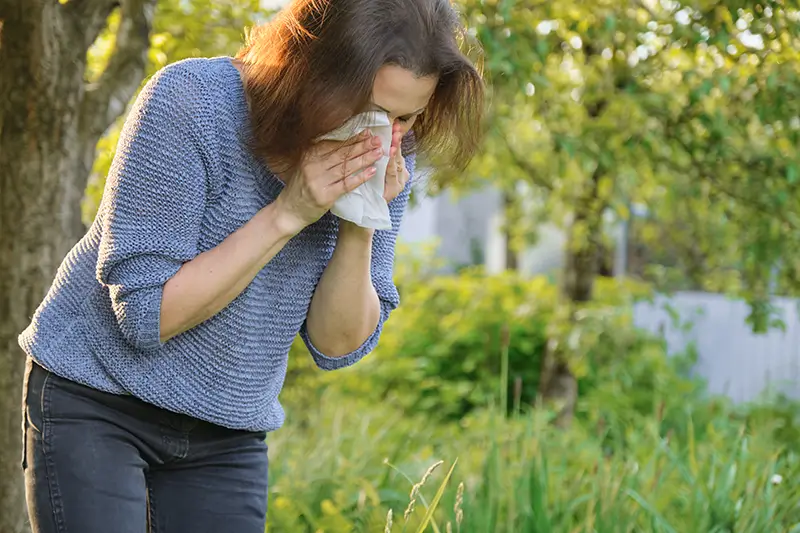The change of seasons from summer to fall also brings changes to your health. Allergies are one of the most common illnesses that do the rounds during autumn or the fall season. During the fall, mold spores and ragweed allergens present in the air can cause seasonal allergies. Rain storms in autumn may encourage some plants to release more pollen, worsening the allergy conditions. Allergists do educate patients on the risks of such seasonal allergies. However, allergies still occur and have to be treated. Allergy specialists can rely on professional medical billing services to meet their medical coding and claim submission requirements.
Web MD reports that about 75% of people who are allergic to spring plants also have reactions to ragweed. For some people who are allergic to ragweed, certain fruits and vegetables including bananas, melon and zucchini can also cause symptoms.
Causes, Symptoms and Treatment
Fall allergies are mainly caused by ragweed pollen, pesky leaves, warm temperatures and school allergens. Allergic rhinitis (hay fever) symptoms show up, if anyone is allergic to ragweed pollen and inhale it from the air. Ragweed pollen allergy can cause asthma symptoms for people with allergic asthma. Going back to school can also bring allergies in kids because mold and dust mites are common in schools.
Common fall allergy symptoms include runny nose, sneezing, temporary loss of smell, headache, fatigue, sore throat, coughing, snoring, watery and itchy eyes, ear congestion, itchy sinuses or throat and postnasal drainage. Many symptoms can even negatively affect an individual’s quality of life by causing tiredness and sleep disturbances and impairing concentration, depending on the frequency and severity of symptoms.
Doctors may recommend a skin test or a blood test to figure out the exact cause of such allergies. Medications such as steroid nasal sprays are also prescribed to reduce nasal irritation, antihistamines to stop sneezing and itching, and decongestants to relieve stuffiness. Immunotherapy may be recommended for long-term allergy management and it can take several years to complete.
ICD-10 and CPT Codes to Report Fall Allergies
ICD-10
- J30 Vasomotor and allergic rhinitis
- J30.1 Allergic rhinitis due to pollen
- J30.2 Other seasonal allergic rhinitis
- J30.9 Allergic rhinitis, unspecified
- J31.0 Chronic rhinitis
CPT
- 95024 Under Allergy Testing Procedures
- 95115 Under Allergen Immunotherapy Services and Procedures
- 95180 Under Allergen Immunotherapy Services and Procedures.
Fall Allergy Prevention Tips
Though there’s no cure for seasonal allergies, these can be prevented and managed easily by
- Checking the daily pollen count
- Checking your city’s air quality report before spending time outside
- Keeping your car and home windows closed
- Taking a shower after spending time outside
- Staying indoors when pollen and mold counts are high
- Turning on the A/C even when it’s not hot to keep out mold spores and pollen from entering your home or car
- Cleaning your heating vents and changing the filter, before turning them on
- Wearing a mask when you rake leaves so you don’t breathe in mold spores
- Using a dehumidifier to keep air at between 35% and 50% humidity
Experienced medical coding companies provide allergy and sleep medicine medical coding services for allergists and immunologists. These providers ensure that the correct medical codes are used on the claims and that the claims are submitted and followed up in a timely manner.




